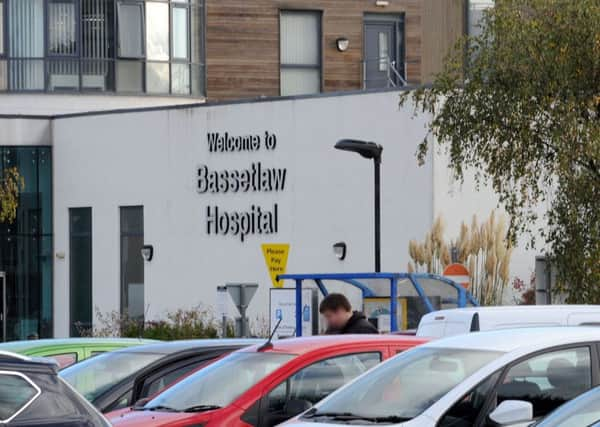Latest figures show rise in cancelled operations at Bassetlaw hospitals


NHS England figures show 210 non-urgent operations, such as hip or knee procedures, were cancelled by DBTH in the three months to September. For the same period in 2017, there were 175.
The data covers cancellations for non-clinical reasons, such as bed or staff shortages, but does not include operations cancelled at more than 24 hours’ notice – so the figures could be masking the true scale of the problem.
Advertisement
Hide AdAdvertisement
Hide AdSarah Scobie, of healthcare research charity the Nuffield Trust, said: “Sadly, this is not a surprise. Although these numbers are small, this is yet another sign of how difficult the NHS is finding it to provide the care people need.”
DBTH responded by saying it had seen a 48 per cent rise in the number of emergency surgery cases since 2015-16.
Director Sewa Singh said: “Operations are only cancelled as a last resort. Emergency surgery has to take priority over certain non-urgent operations and sometimes we have to cancel these procedures due to circumstances beyond our control.
“This becomes more likely as we head into the winter months and emergency activity increases.”
Advertisement
Hide AdAdvertisement
Hide AdIf a trust cannot reschedule a non-urgent operation within 28 days, it must instead fund the treatment in another hospital and forfeit a payment from the local Clinical Commissioning Group.
There were 18,460 last minute cancellations across England in the three months to September, of which 8.3 per cent were not rescheduled within the 28 days – up from 6.8 per cent a year ago.
With cancellations rising across England, the Royal College of Surgeons (RCS) said it reflected pressure on an already over-stretched NHS.
Vice president Professor Cliff Shearman said: “Having an operation that has been planned for months cancelled can be very stressful for patients and their families.
“They will also have to endure waiting longer in pain and discomfort and, in some cases, their condition may worsen.”